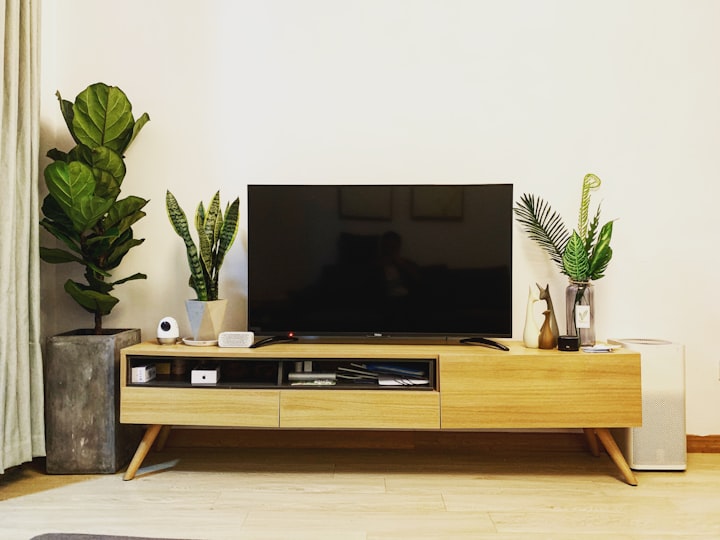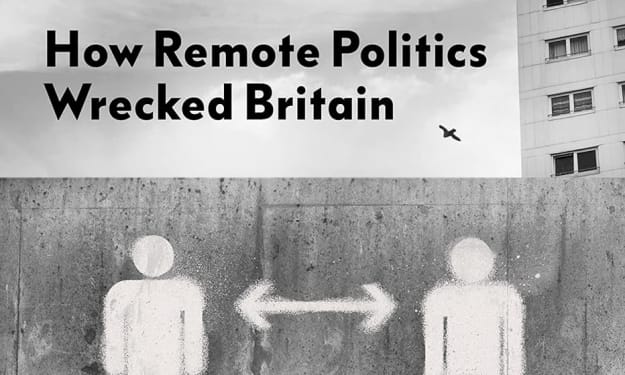The TV Licence Oversteps Its Bounds
The concept of the UK's TV Licence isn’t without merit. But its current execution is.
The time was 5:30am, and I was awake.
Because I was awake long before I needed to be, I made a cup of tea and decided to watch the US vice presidential debate on YouTube. I would have watched the debate the day after it aired regardless, because these days I tend to go down with the sun. But even if I had wanted to stay up late to watch the debate live, I would have been legally unable to.
Hello, I’m a resident of the UK and I don’t have a TV Licence.
When I first came to England from the US back in 2007 as an exchange student, I thought the lack of TV advertising was amazing. One of the modules the American exchange students took was meant to be a class examining the cultural differences between the United States and the United Kingdom as we experienced them.
What it became was a weekly support group for us to lament the things we missed from our homeland. One thing someone mentioned was the ads. They missed the constant interruptions in even half hour slots. ‘When am I supposed to go to the bathroom?’
Firstly, if you cannot hold your bladder for twenty minutes you may want to visit a doctor (though I realise visiting a doctor is not an obvious course of action for the average American). But honestly I couldn’t understand missing the advertising. They’ve been growing in length for decades now. According to Gaebler Ventures, as referenced by Wikipedia:
In the 1960s a typical hour-long American show would run for 51 minutes excluding advertisements. Today, a similar program would only be 42 minutes long; a typical 30-minute block of time now includes 22 minutes of programming and eight minutes of advertisements — six minutes for national advertising and two minutes for local.
In the UK, commercial channels are allowed an overall average of 7 minutes per hour by broadcasting regulator Ofcom. That’s already a great step down from the more free-wheeling American landscape.
The BBC, however, is funded by the TV licence fee and does not screen adverts. And presumably, if you don’t watch the BBC, you don’t have to pay the licence fee, right? Kind of.
According to the official TV Licencing website you need to be covered by a TV Licence:
- if you’re watching on TV or on an online TV service
- for all channels, not just the BBC
- if you record a programme and watch it later
- if you watch a programme on a delay
- to watch or record repeats
- to watch or record programmes on +1, +2 and +24 channels
- to watch live programmes on Red Button services
- even if you already pay for cable, satellite or other TV services
So you have to pay twice for ITV. And you have to pay the fee if you want to watch a gamer stream live on YouTube or Twitch. And you have to pay the fee if you want to watch your own country’s presidential debates, as hosted by a non-UK broadcaster like PBS, on a platform not controlled by the BBC like YouTube.
That alone may seem pretty unfair, and that’s because it is. It’s literally cost nothing to the UK or BBC to create that content, and its delivery is nothing to do with the BBC.
But when you couple that with how TV licencing fees are spent (overwhelmingly not on the actual business of creating and delivering television and radio programming, to the point that Parliament threatened inquiry and freezing fees), it feels even more offensive.
Don’t get me wrong. I want to fund the BBC. I want to, specifically, fund BBC nature documentaries (though less these days because Netflix has been successful in poaching talent like Alastair Fothergill and the venerable Sir David Attenborough).
But it seems pretty clear that these days, rather than being subsidised by the government or finding other ways to cover their costs (or cutting those costs) the BBC’s business plan seems to be to simply charge people for more and more things they have no business charging for.
About the Creator
Leigh Wynter (she/her)
Poet and essayist based in Southampton UK. Follow for the personal and the political.
Want to learn more about poetry? That's here: https://leighwynter.substack.com/







Comments
There are no comments for this story
Be the first to respond and start the conversation.